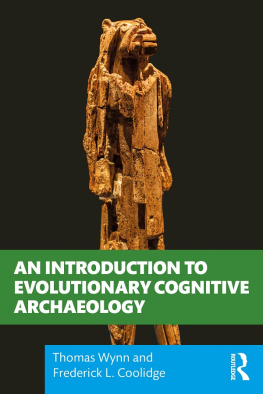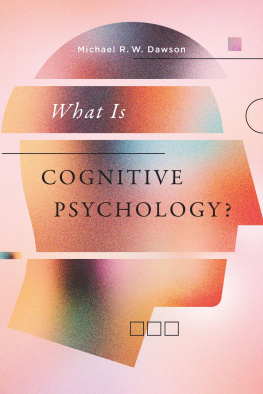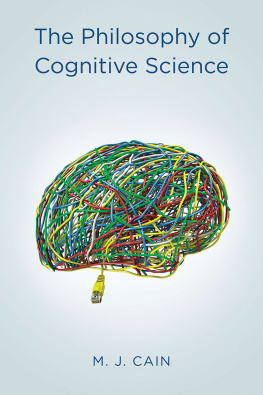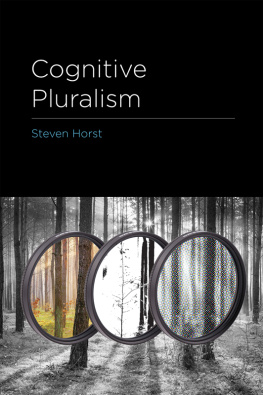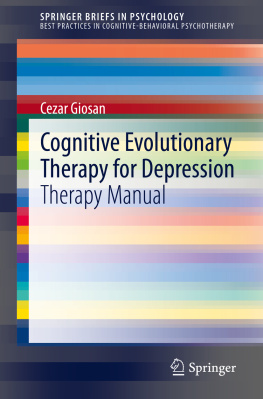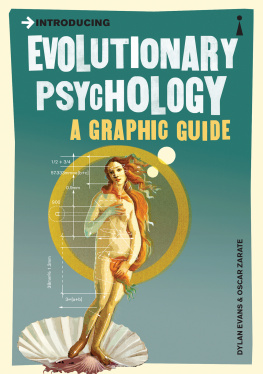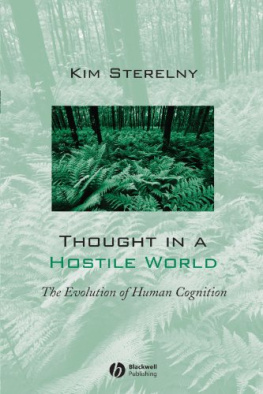Thomas Wynn - An Introduction to Evolutionary Cognitive Archaeology
Here you can read online Thomas Wynn - An Introduction to Evolutionary Cognitive Archaeology full text of the book (entire story) in english for free. Download pdf and epub, get meaning, cover and reviews about this ebook. City: New York, year: 2022, publisher: Routledge, genre: History / Science. Description of the work, (preface) as well as reviews are available. Best literature library LitArk.com created for fans of good reading and offers a wide selection of genres:
Romance novel
Science fiction
Adventure
Detective
Science
History
Home and family
Prose
Art
Politics
Computer
Non-fiction
Religion
Business
Children
Humor
Choose a favorite category and find really read worthwhile books. Enjoy immersion in the world of imagination, feel the emotions of the characters or learn something new for yourself, make an fascinating discovery.
- Book:An Introduction to Evolutionary Cognitive Archaeology
- Author:
- Publisher:Routledge
- Genre:
- Year:2022
- City:New York
- Rating:4 / 5
- Favourites:Add to favourites
- Your mark:
An Introduction to Evolutionary Cognitive Archaeology: summary, description and annotation
We offer to read an annotation, description, summary or preface (depends on what the author of the book "An Introduction to Evolutionary Cognitive Archaeology" wrote himself). If you haven't found the necessary information about the book — write in the comments, we will try to find it.
An Introduction to Evolutionary Cognitive Archaeology is the first concise introduction that lays out the epistemological foundations of evolutionary cognitive archaeology in a way that is accessible to students.
The volume is divided into three sections. The first section situates cognitive archaeology in the pantheon of archaeological approaches and distinguishes between ideational cognitive archaeology and evolutionary cognitive archaeology. This is followed by a close look at the nature of cognitive archaeological inferences and concludes with brief summaries of the major methods of evolutionary cognitive archaeology. The second section of the book introduces the reader to a variety of cognitive phenomena that are accessible using the methods of cognitive archaeology: memory, technical cognition, spatial cognition, social cognition, art and aesthetics, and symbolism and language. The third section presents a brief outline of hominin cognitive evolution from the perspective of evolutionary cognitive archaeology. The authors divide the archaeological record into three major phases: The Bipedal Apes3.3 million-1.7 million years ago; The Axe Age1.7 million-300,000 years ago; and The Emergence of Modern Thinking300,00012,000 years ago.
An Introduction to Evolutionary Cognitive Archaeology is an essential text for undergraduate students, graduate students, and scholars across the behavioral and social sciences interested in learning about cognitive archaeology, including psychologists, philosophers, anthropologists, and archaeologists.
Thomas Wynn: author's other books
Who wrote An Introduction to Evolutionary Cognitive Archaeology? Find out the surname, the name of the author of the book and a list of all author's works by series.

